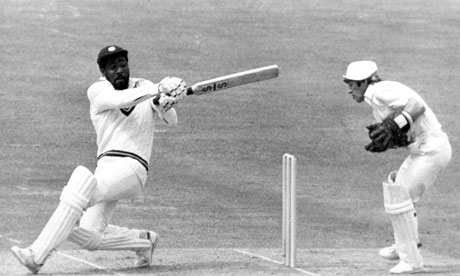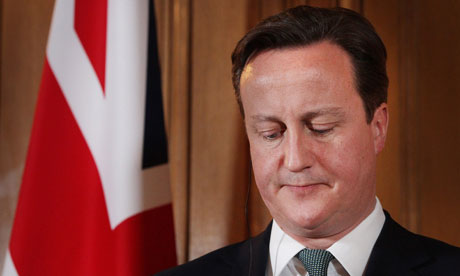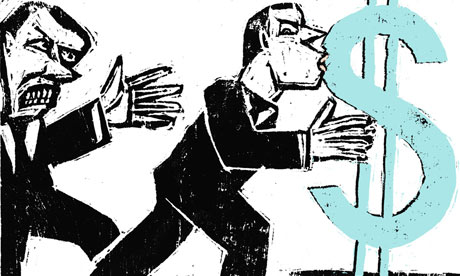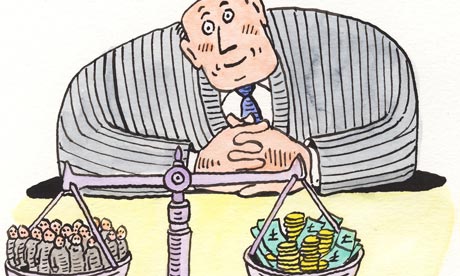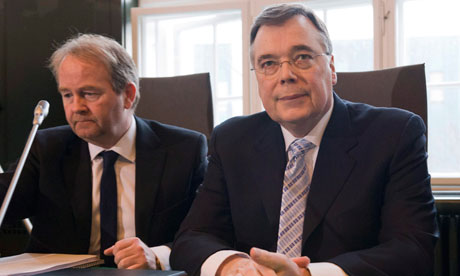A common heart disease drug may have the unusual side-effect of combating racism, a new study suggests.
The beta-blocker drug can reduce 'subconscious' racism, the Oxford University
study found.
Researchers found that people who took propranolol scored significantly lower
on a standard test used to detect subconscious racial attitudes, than those
who took a placebo.
Propranolol is most often used to reduce high blood pressure by lowering the
heart rate, as well as angina and irregular heartbeat. It is also used to
manage the physical symptoms of anxiety, and control migraine.
It is thought to work by blocking activation of the peripheral 'automatic' nervous system, and in areas of the brain involved with formulating emotional responses, including fear, called the amygdalae.
The researchers believe propranolol reduces racial bias because such
subconscious thoughts are triggered by that automatic nervous system.
Their small study took 36 white student volunteers, gave half a single 40mg
dose of propranolol and half a placebo, and asked them all to undertake the Implicit
Association Test - designed to test "subtle and spontaneous biased
behaviour" - two hours later.
The test requires participants to visually sort particular words like 'joy' ,'evil', 'happy' and 'glorious', as well as black and white faces, into the correct categories.
Sylvia Terbeck, lead author of the study, published in the journal Psychopharmacology, said: "Our results offer new evidence about the processes in the brain that shape implicit racial bias.
"Implicit racial bias can occur even in people with a sincere belief in equality.
"Given the key role that such implicit attitudes appear to play in discrimination against other ethnic groups, and the widespread use of propranolol for medical purposes, our findings are also of considerable ethical interest."
Professor Julian Savulescu, of the university's Faculty of Philosophy, and a co-author of the study, said: "Such research raises the tantalising possibility that our unconscious racial attitudes could be modulated using drugs, a possibility that requires careful ethical analysis.
"Biological research aiming to make people morally better has a dark history. And propranolol is not a pill to cure racism. But given that many people are already using drugs like propranolol which have 'moral' side effects, we at least need to better understand what these effects are."
But Dr Chris Chambers, from Cardiff University's School of Psychology, said the results should be treated with "extreme caution".
He said: "We don't know whether the drug influenced racial attitudes only or whether it altered implicit brain systems more generally. And we can't rule out the possibility that the effects were due to the drug incidentally reducing heart rate.
"So although interesting, in my view these preliminary results are a long way from suggesting that propranolol specifically influences racial attitudes."
*Propranolol reduces implicit negative racial bias, Psychopharmacology DOI 10.1007/s00213-012-2657-5
The test requires participants to visually sort particular words like 'joy' ,'evil', 'happy' and 'glorious', as well as black and white faces, into the correct categories.
Sylvia Terbeck, lead author of the study, published in the journal Psychopharmacology, said: "Our results offer new evidence about the processes in the brain that shape implicit racial bias.
"Implicit racial bias can occur even in people with a sincere belief in equality.
"Given the key role that such implicit attitudes appear to play in discrimination against other ethnic groups, and the widespread use of propranolol for medical purposes, our findings are also of considerable ethical interest."
Professor Julian Savulescu, of the university's Faculty of Philosophy, and a co-author of the study, said: "Such research raises the tantalising possibility that our unconscious racial attitudes could be modulated using drugs, a possibility that requires careful ethical analysis.
"Biological research aiming to make people morally better has a dark history. And propranolol is not a pill to cure racism. But given that many people are already using drugs like propranolol which have 'moral' side effects, we at least need to better understand what these effects are."
But Dr Chris Chambers, from Cardiff University's School of Psychology, said the results should be treated with "extreme caution".
He said: "We don't know whether the drug influenced racial attitudes only or whether it altered implicit brain systems more generally. And we can't rule out the possibility that the effects were due to the drug incidentally reducing heart rate.
"So although interesting, in my view these preliminary results are a long way from suggesting that propranolol specifically influences racial attitudes."
*Propranolol reduces implicit negative racial bias, Psychopharmacology DOI 10.1007/s00213-012-2657-5


 120 Comments
120 Comments
